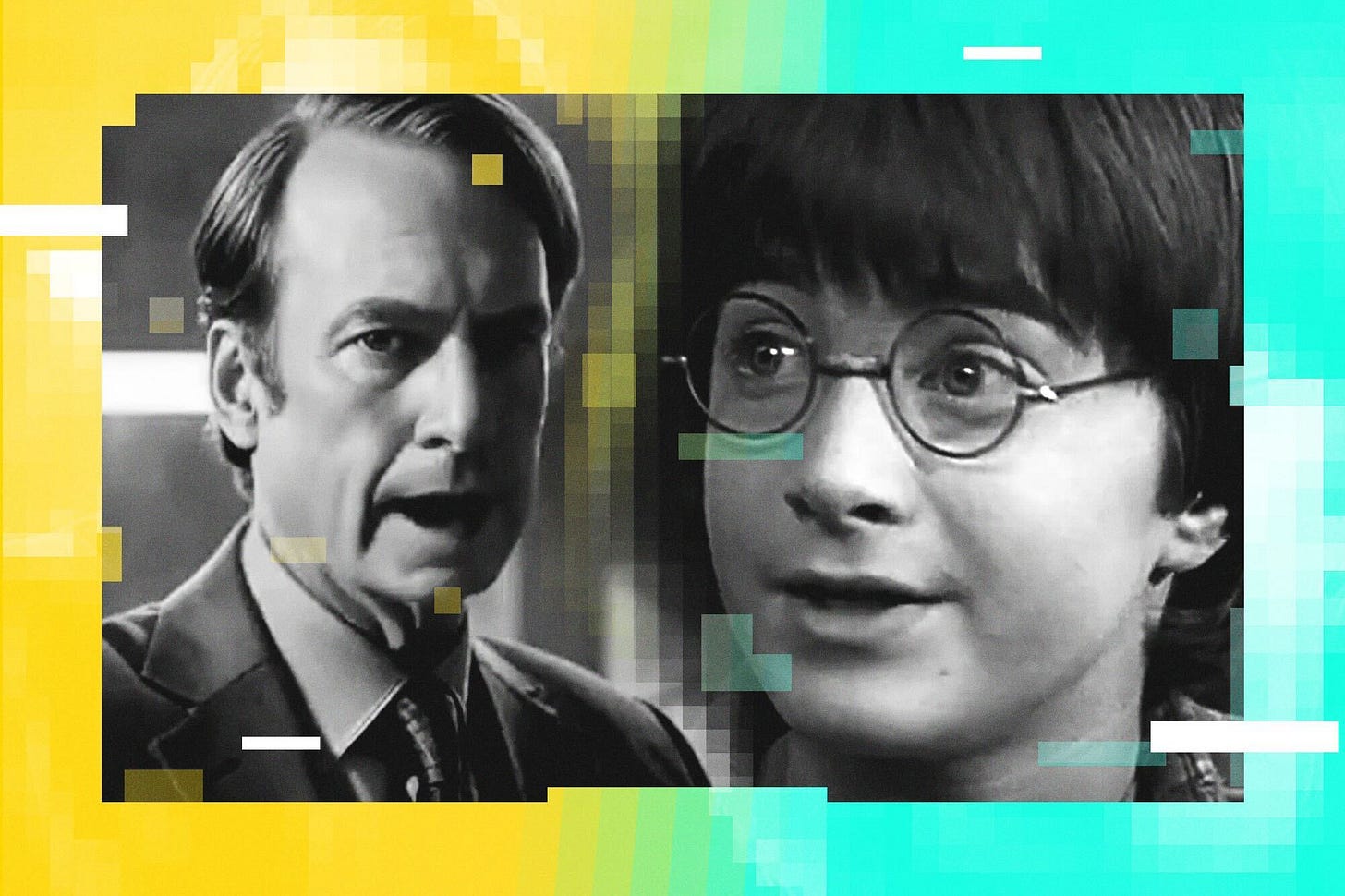Next Cash Cow: AI-Fueled Fan Fiction
IP icons from 'Friends' to Harry Potter are being manipulated by consumers. Now it’s time studios and tech worked together

Erik Barmack writes every other Tue. for paid subscribers. He recently revealed the AI animation app that should terrify Hollywood; how AI reasoning will DOGE Hollywood exec ranks; and why 2025 is the year of the full-length AI movie.
Having worked at Netflix for a few years, I was not aware, at least not fully, that Squid Game was a franchise that would appeal to younger kids. That is, until my two sons, Walter and Jon, ages 8 and 9 respectively, came home from school, insisting that everyone in their classes was watching it. My wife and I are not immune to social pressure — especially the sort wielded by second and third graders — so over a series of weekends, we watched in horror and amazement as our kids soaked in every blood-spackled scene.
Once we made it through both seasons, our kids, active consumers, did what they do best: Extend the franchise. Jon bought Squid Game Crocs, replete with a red splatter pattern around the shoes’ circumference and the number “456” on the heels. Walter went to town making Squid Game toys with his 3D printer. Both actively, disturbingly, continue to play Squid Game-themed Roblox games and watch tons of ripoffs of the megahit on YouTube. The speed and manic nature of their consumption of this IP has been dizzying and overwhelming.

Notice how little Netflix benefits from all this spending. The Crocs might be a license, but that’s it. My former employer has to wait for season three to debut this summer — even my youngest, Penny (4), is now looking forward to it — to get more from the Barmacks.
There has never been a time in the history of media where global content companies can build such expansive franchises so quickly, and yet be so disconnected from the full scope of their value.
AI is only accelerating this divide. Marvel, DC, Blumhouse, take your pick of global IP giants: Their characters are everywhere being mimicked, remixed and reimagined by fans using a new generation of AI tools. If any character can be uploaded, modeled against and instantly featured in new content, then franchises can be extended by anyone, anytime, anywhere. Remember when your biggest worry was whether your IP was being used merely to train AI? I have news for you below.
Fans are using these products to reproduce characters, styles and even cinematic tone to create a gestational form of personalized content. Meanwhile, as Richard Rushfield and Sean McNulty explored earlier this month, many of the IP franchises that studios have relied upon for decades are at a critical juncture where over-extension risks harming the golden goose. (Read parts one and two here.)
AI-generated fanfic media offers something different: the organic growth of IP ecosystems, without studio fatigue — if, and only if, the legal frameworks and business models to support this growth are established.
This is a thrilling creative — and business — opportunity and a massive quagmire. What once required years of studio planning could now take minutes in someone’s browser or within an app. Hollywood wasn’t built on the principle of widely distributed authorship but rather the tightly held rights of creators and corporations. During last week’s Disney annual shareholder meeting, CEO Bob Iger answered a question about generative AI by saying, “We’re taking precautions to make sure . . . that our IP is being protected.”
But in the AI era, hold onto things too tightly and you risk throttling the golden goose (a phenomenon Abby Barr and Matthew Frank recently covered in the context of studio marketing and Gen Z fans’ viral posts). The better these tools become, the more urgently we have to ask: How can everyone benefit?
In this issue, I’ll tell you:
AI startups’ vision for fan-powered, “infinite” stories using studio IP
The product that allows users to create their own moments from Bridgerton, Breaking Bad and other shows — and what went wrong
9 companies enabling fans to interact with such iconic characters as Harry Potter — without WBD’s or J.K. Rowling’s consent
The case for studios to lean into fan energy, not run from it
The 1980s tech disruption that should inspire Hollywood to turn AI into a goldmine
Why studios should integrate these technologies rather than license IP
The technological breakthrough fueling this moment
YouTube for AI-Generated Content
This column is for paid subscribers only. Interested in a group sub for your team or company? Click here.
For full access and to continue reading all Ankler content, paid subscribers can click here.
Erik Barmack is a working producer and the founder of Wild Sheep Content. He also runs a news site dedicated to AI in the entertainment industry called AI in Hollywood.



This one’s a doozy: “AI-generated fanfic media offers something different: the organic growth of IP ecosystems, without studio fatigue…”